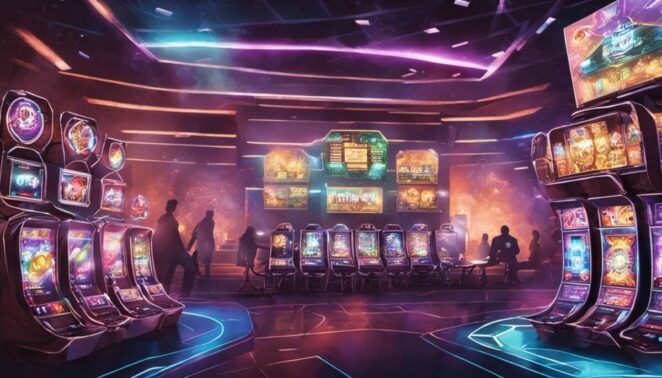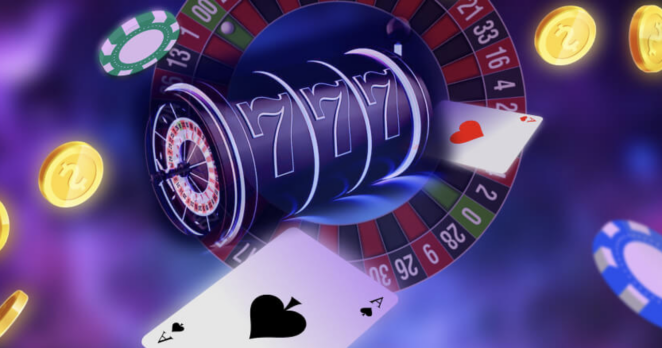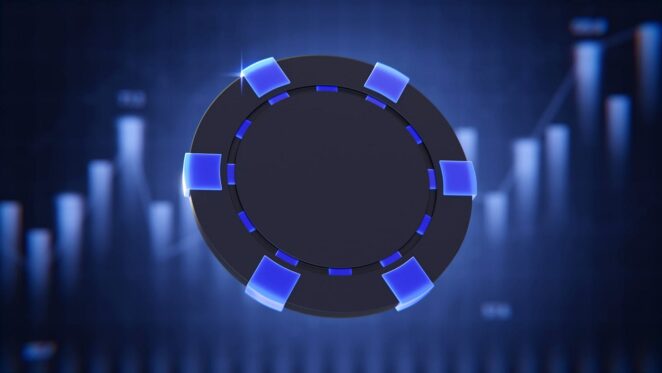In the ever-evolving landscape of technology, blockchain has emerged as a transformative force, disrupting industries and revolutionizing conventional systems.
One sector that is now under the influence of blockchain innovation is the gaming industry. With the advent of decentralized gaming, traditional concepts are being redefined, and a new era of transparency, security, and user empowerment is dawning upon us.
Understanding Decentralized Gaming

Decentralized gaming, powered by blockchain technology, shifts the paradigm from centralized control to a distributed and transparent system.
The underlying principle of blockchain is to create a secure and tamper-resistant ledger of transactions, and this feature brings a breath of fresh air to the gaming world. Decentralization eliminates the need for intermediaries, putting power directly in the hands of users.
Transparency and Fairness
One of the primary advantages of decentralized gaming is the transparency it offers. Traditional online casinos and gaming platforms often face skepticism regarding the fairness of their operations.
Blockchain addresses this concern by providing a transparent and immutable record of all transactions and activities. Players can verify the fairness of the games they participate in, enhancing trust in the gaming ecosystem.
Ownership of Assets
In decentralized gaming, players have true ownership of their in-game assets. Through blockchain-based tokens and smart contracts, gamers can buy, sell, and trade virtual assets securely.
This ownership extends beyond the game itself, allowing players to monetize their in-game achievements and items in a real-world context.
Security and Anonymity
Blockchain’s decentralized nature enhances the security of gaming transactions. With data stored across a network of nodes, the risk of hacks and fraudulent activities is significantly reduced.
Additionally, players can enjoy a higher level of anonymity, as transactions are conducted pseudonymously, providing a layer of privacy that traditional gaming platforms may lack.
Integration of Blockchain in Slot Games

Slot games, a timeless favorite among casino enthusiasts, are progressively adopting the transformative capabilities of blockchain technology.
The incorporation of blockchain in slot games yields a myriad of advantages, ultimately revolutionizing the overall gaming experience for players.
Provably Fair Gaming
Blockchain introduces the concept of provably fair gaming, a revolutionary idea that empowers players to independently verify the fairness of each spin or game outcome.
Through the implementation of cryptographic algorithms and decentralized consensus mechanisms, the integrity of results is safeguarded against manipulation. This heightened transparency not only fosters trust but also addresses lingering concerns about the fairness of traditional slot machines.
Tokenization of In-Game Assets
Blockchain facilitates the seamless tokenization of in-game assets, enabling slot game developers to craft unique digital assets through the use of non-fungible tokens (NFTs).
Players can take ownership of these tokens, representing rare or special items within the game. This innovative tokenization not only elevates the gaming experience but also unlocks novel possibilities for the development of virtual economies.
Cross-Platform Compatibility
Decentralized slot games, underpinned by blockchain, inherently boast cross-platform compatibility. This means that players can effortlessly access their preferred slot games across a variety of devices and platforms without compromising progress or in-game assets.
The resulting interoperability not only enriches the user experience but also provides a flexible gaming environment for players who prefer to engage on different devices.
Challenges and Solutions

While the potential of decentralized gaming is vast, it is essential to acknowledge and address the challenges that come with its implementation.
Understanding and overcoming these hurdles are crucial for the widespread adoption of blockchain in the gaming industry.
Scalability
Scalability remains a concern for blockchain networks. The transaction throughput of popular blockchains may not be sufficient to handle the high volume of transactions in gaming applications.
However, ongoing developments, such as layer 2 solutions and blockchain upgrades, aim to address scalability issues and improve the efficiency of decentralized gaming platforms.
User Onboarding
For widespread adoption, user onboarding needs to be seamless. Many potential users are unfamiliar with blockchain technology, and creating user-friendly interfaces and tutorials becomes crucial.
Educating players about the advantages of decentralized gaming and simplifying the process of acquiring and managing cryptocurrencies are essential steps in overcoming this challenge.
Regulatory Landscape
The regulatory environment surrounding blockchain and gaming varies globally. Navigating through different regulatory frameworks poses a challenge for decentralized gaming platforms.
Collaborative efforts between the gaming industry and regulatory bodies are necessary to establish clear guidelines that promote innovation while ensuring consumer protection.
The Future of Decentralized Gaming

As blockchain technology continues to mature and gain widespread acceptance, the future of decentralized gaming looks promising. Several trends and developments are shaping the trajectory of this transformative approach to gaming.
Continued Innovation in Blockchain Technology
Advancements in blockchain technology, such as the development of more scalable and efficient consensus mechanisms, will play a pivotal role in the evolution of decentralized gaming.
Enhanced security, faster transaction speeds, and reduced energy consumption are among the improvements that can be expected.
Integration of Virtual Reality (VR) and Augmented Reality (AR)
The convergence of decentralized gaming with virtual reality and augmented reality is an exciting prospect.
Imagine a future where players can enter virtual worlds, interact with decentralized assets in a lifelike environment, and experience immersive gaming like never before. This integration has the potential to redefine the boundaries of gaming and create entirely new experiences for players.
Mainstream Adoption and Industry Collaboration
For decentralized gaming to reach its full potential, it must achieve mainstream adoption. This requires collaboration between blockchain developers, gaming companies, and regulatory bodies to create an environment that fosters innovation while ensuring user protection.
As more players and developers embrace decentralized gaming, the industry will witness a paradigm shift towards a more inclusive and user-centric model.
Conclusion
In conclusion, the intersection of blockchain and slots marks a significant step towards the future of gaming. Decentralized gaming brings transparency, ownership, and security to the forefront, addressing longstanding concerns within the gaming industry.
The integration of blockchain in slot games, with its focus on provable fairness and asset tokenization, opens up new possibilities for both developers and players.
While challenges such as scalability and regulatory uncertainties persist, ongoing innovations and collaborations are actively addressing these issues. Successful platforms like Decentraland, FunFair, and CryptoKitties serve as tangible examples of the positive impact of decentralized gaming.
As the industry continues to evolve, the future holds exciting prospects, including advancements in blockchain technology, the integration of virtual and augmented reality, and the attainment of mainstream adoption.
Decentralized gaming is not just a technological shift; it’s a cultural and economic transformation that empowers players and reshapes the way we perceive and participate in the world of gaming.




